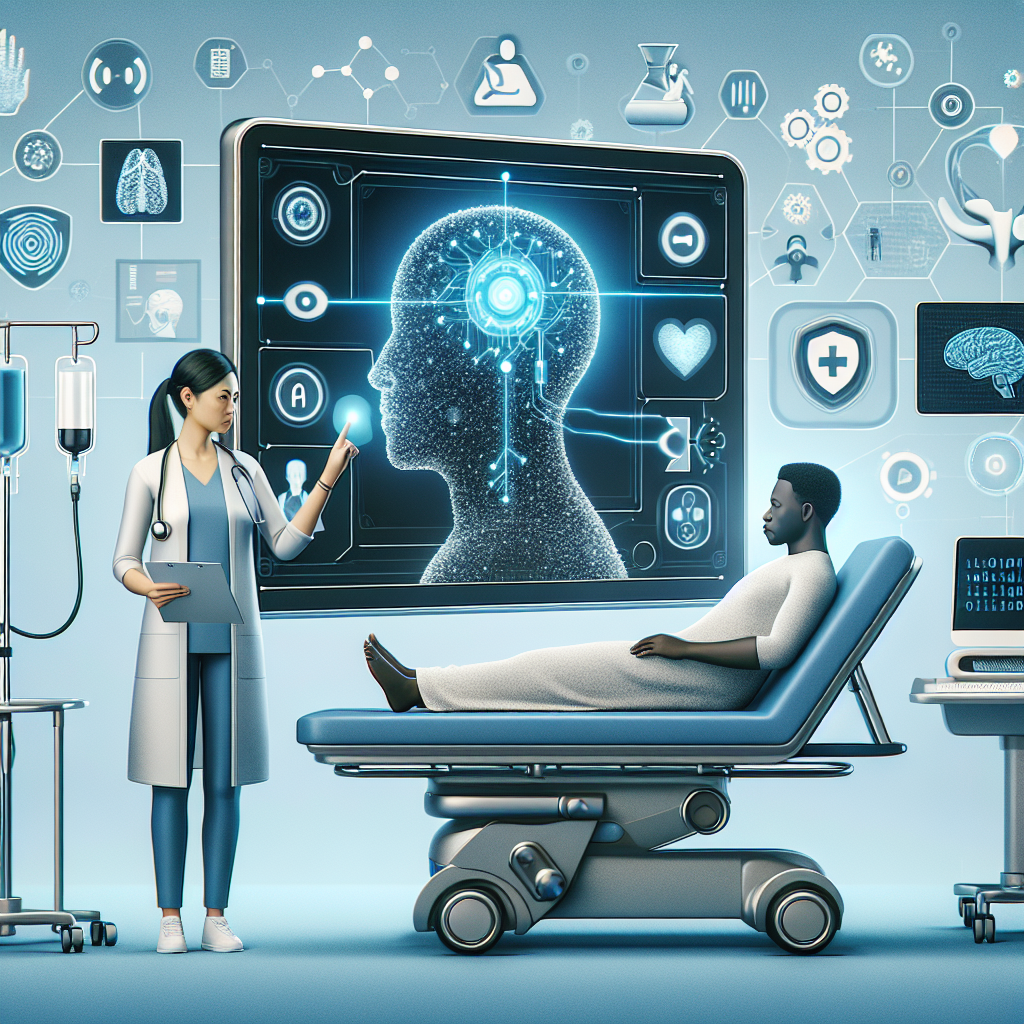Artificial intelligence (AI) has revolutionized many industries, and healthcare is no exception. AI is transforming the way patients experience healthcare, from diagnosis and treatment to patient care and follow-up. In this article, we will explore the impact of AI on healthcare patient experience and how it is improving the overall quality of care.
AI in Diagnosis and Treatment
One of the key areas where AI is making a significant impact in healthcare is in the field of diagnosis and treatment. AI algorithms are being used to analyze medical images, such as X-rays, MRIs, and CT scans, to help physicians detect and diagnose diseases more accurately and quickly.
For example, AI-powered software can analyze thousands of medical images and identify patterns or abnormalities that may not be immediately visible to the human eye. This can help doctors make more accurate diagnoses and develop more personalized treatment plans for their patients.
AI is also being used to develop predictive models that can help healthcare providers anticipate and prevent diseases before they occur. By analyzing patient data and identifying risk factors, AI algorithms can help doctors identify patients who may be at higher risk for certain conditions and intervene early to prevent the onset of disease.
Overall, AI is helping to improve the accuracy and efficiency of diagnosis and treatment, leading to better outcomes for patients and a more personalized approach to healthcare.
AI in Patient Care and Follow-Up
In addition to diagnosis and treatment, AI is also transforming patient care and follow-up. AI-powered chatbots and virtual assistants are being used to provide patients with personalized information and support, helping them manage their health and wellness.
For example, AI chatbots can answer patients’ questions, schedule appointments, and provide reminders for medications or follow-up visits. These virtual assistants can also analyze patient data and provide personalized recommendations for diet, exercise, and lifestyle changes to help patients improve their overall health.
AI-powered telemedicine platforms are also making it easier for patients to access healthcare services remotely. Patients can consult with healthcare providers via video calls, receive prescriptions electronically, and even monitor their health parameters at home using wearable devices that are connected to AI algorithms.
Overall, AI is helping to improve the patient experience by making healthcare more accessible, convenient, and personalized. Patients can receive the care they need when and where they need it, leading to better outcomes and higher patient satisfaction.
FAQs
Q: Is AI replacing doctors in healthcare?
A: No, AI is not replacing doctors in healthcare. Instead, AI is being used to support and enhance the work of healthcare providers. AI algorithms can analyze large amounts of data and identify patterns or trends that may not be immediately visible to humans, helping doctors make more accurate diagnoses and develop personalized treatment plans.
Q: Is AI secure and private in healthcare?
A: Yes, AI in healthcare is subject to strict data privacy and security regulations to protect patient information. Healthcare providers must comply with regulations such as HIPAA (Health Insurance Portability and Accountability Act) to ensure that patient data is kept secure and confidential when using AI technologies.
Q: How can patients benefit from AI in healthcare?
A: Patients can benefit from AI in healthcare by receiving more accurate diagnoses, personalized treatment plans, and convenient access to healthcare services. AI algorithms can help doctors identify diseases earlier, develop more effective treatment strategies, and provide patients with the information and support they need to manage their health and wellness.
Q: What are the limitations of AI in healthcare?
A: While AI has the potential to improve healthcare in many ways, there are also limitations to consider. AI algorithms may not always be accurate or reliable, and there is a risk of bias in the data used to train AI models. Additionally, AI cannot replace the human touch and empathy that is essential in healthcare.
In conclusion, AI is revolutionizing the healthcare industry and transforming the patient experience. From diagnosis and treatment to patient care and follow-up, AI is helping to improve the accuracy, efficiency, and personalization of healthcare services. By leveraging the power of AI, healthcare providers can deliver better outcomes, higher patient satisfaction, and ultimately, improved health and wellness for all.

